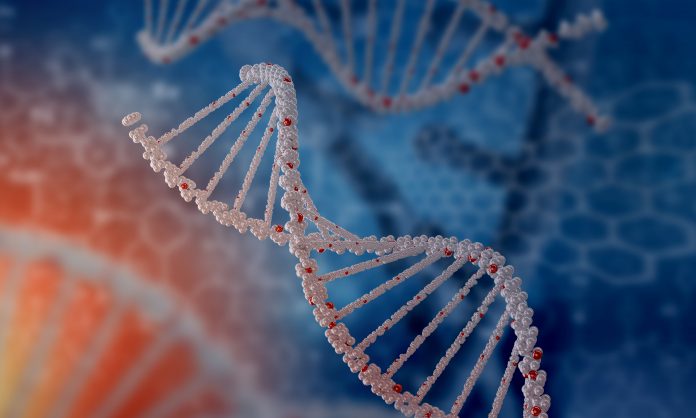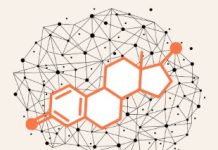Is Thomas Kuhn’s idea of “scientific revolution” useful for explaining advance in biological research? The examples of biocolloidy and epigenetics
Based on his experience with evolutionary biologists, paleobiologist Douglas H. Erwin (2007) concluded that “there is nothing scientists enjoy more than the prospect of a good paradigm shift.” He referred to historian/philosopher of science Thomas Kuhn, who in his book “The structure of scientific revolutions” (1962), argued that science develops not by cumulative scientific progress, but by paradigm shifts and scientific revolutions, i.e., sudden changes that do not imply scientific progress. A scientific revolution consists of the replacement of one paradigm by another one that is incompatible with the previous one. The term “paradigm” is not clearly defined; it can refer to generally accepted principles, theories, or methodological approaches.
At least in the biomedical sciences, revolutions in the sense of Kuhn are rare; most research has advanced by the increase of experimental and theoretical knowledge and by developing new fields of research that were not incompatible with the old ones. An example is the rise of molecular genetics that is well compatible with, and did not replace, classical genetics. Some cases of supposed revolutions that claim to change the whole framework of a field can turn out to be dead ends or exaggerations. Here I present the examples of (i) biocolloidy at the beginning of the 20th century and (ii) epigenetics at the end of that century.
Biocolloidy and molecular aggregates
(i) Biocolloidy rejected the 19th century notion of the existence of macromolecules such as proteins, holding instead that all biologically relevant substances like proteins and nucleic acids were biologically active colloidal aggregates of undetermined composition. Physiological processes such as muscle contraction were explained by increasing or decreasing dispersion of colloids.
Many biologists and biochemists appreciated the assumption that the phenomena of life followed new colloidal laws that could not be reduced to structural organic chemistry. However, a few decades later, it became clear that, despite its revolutionary claims, biocolloidy had not led to a revolution in the chemistry of life. Its basic concepts turned out to be untenable and biocolloidy disappeared with the advent of molecular biology, according to which the biologically relevant molecules in the cell, such as DNA and proteins, were macromolecules, not colloidal aggregates. This was indeed a new paradigm that was incompatible with the old colloidal one, but unlike Kuhn’s suggestion of the equivalence of paradigms, it was far superior to the old one, leading to immense progress. The concept of macromolecules soon became generally accepted and (macro-) molecular biology completely replaced biocolloidy.
Like biocolloidy in the past, epigenetics in the present is a fashionable and fast-growing scientific field that has also received much attention from social scientists and the popular press. While the public and social scientists perceive epigenetics mainly as DNA methylation, developmental, molecular and cell biologists define epigenetics in very different ways. It can relate to research on chromatin structure and function, DNA methylation, cellular memory, long non-coding RNA in transcriptional regulation, and many epigenetic studies look at the interaction of DNA sequence-specific transcription factors, repressors, and RNA polymerases with histone proteins, chromatin compaction, looping, etc. in gene regulation processes (Deichmann 2020).
The rise of epigenetics
Similarly to biocolloidy, the rise of epigenetics has been accompanied by some of its proponents’, and, later, the popular press’s, far-reaching claims and revolutionary attitudes towards well established knowledge. Florian Maderspacher, then an editor of the journal Current Biology, in 2010 introduced the term “Epigenetics Hype” to describe the widespread revolutionary claims of a “victory over genes” by epigenetics in scientific and popular literature. They were, for example, expressed in the assertion that “DNA Is Not Destiny …The new science of epigenetics rewrites the rules of disease, heredity, and identity” (https://www.discovermagazine.com/the-sciences/dna-is-not-destiny-the-new-science-of-epigenetics). As in Doug Erwin’s remark, scientists and commentators of science enjoyed the prospect of epigenetics leading to a “paradigm shift” in genetics, development, evolution, cancer, and nutrition research. Assertions that epigenetics regulates gene-expression or that it relativizes the causal role of genes in development and heredity are widespread, as is the use of epigenetics as a major explanatory concept in the fast-rising neo-Lamarckism though there is no evidence for the lasting influence of the environment on epigenetic marks or the epigenome of higher organisms.
Meanwhile there is clear evidence that epigenetics cannot be separated from genetics because epigenetic mechanisms such as DNA methylation are dependent on DNA sequence specific events. The enzymes that modify histones or attach methyl groups to DNA lack specific DNA binding domains and are not specifically directed to certain genes. Moreover, DNA methylation does not silence active promoters of genes (DNA regions where transcription is initiated) but affects genes that are already silent. It is also generally accepted that DNA methylation is mostly involved in processes like transposon silencing, imprinting, and X chromosome inactivation, and not in gene regulation in development. In the words of Timothy Bestor, “mammalian genomic methylation patterns represent an evolutionary adaptation of a genome defense system that endows genomes with the ability to inactivate specific genomic regions in a self-perpetuating manner which is essentially irreversible over the lifespan of the organism.” (Bestor 2015) Gene activation and repression during development are controlled not by DNA methylation but by well-established and conserved protein-, and RNA-, based mechanisms.
Revolutionary aspirations: biocolloidy and epigenetics
In summary, biocolloidy and epigenetics, two fields with revolutionary aspirations, did not bring about a revolution or paradigm shift in biology in the sense of Thomas Kuhn. Regarding its basic concepts, biocolloidy turned out to be a dead end. In epigenetics, too, the fast increase of the field does not indicate a revolution; research on chromatin modification, DNA methylation, etc. did not replace genetic and genomic research. But the various strands of epigenetic or chromatin research are certainly not a dead end. They are a continuation of research related to the old question of gene regulation in the development of higher organisms, including novel concepts and techniques. Epigenetics, however defined, has led to the opening up of new directions of basic research and of medical and other applications but does not call into question the paradigm of genomic information as a major cause of heredity and development. Concerning the (often psychologically motivated) longing for an overturning of this paradigm through epigenetics, it may be useful to remember another saying of Kuhn, namely: “We have to relinquish the notion, explicit or implicit, that changes of paradigm carry scientists and those who learn from them closer and closer to the truth.”
References:
- Bestor, T.H., Edwards, J.R., Boulard, M. Notes on the role of dynamic DNA methylation in mammalian development. PNAS. 2015;112:6796–9.
- Deichmann, U. 2020. The social construction of the social epigenome and the larger biological context, Epigenetics & Chromatin 13:37.
- Erwin, D. 2007. Darwin still rules, but some biologists dream of a paradigm shift. Essay, New York Times, June 26.
- Kuhn, T. S. 1962. The Structure of Scientific Revolutions. Chicago: University of Chicago Press.
- Maderspacher, F. Lysenko rising. Curr. Biol. 20, No. 19, R836.









Nonsense article full of false claims with no scientific evidence. For example “Assertions that epigenetics regulates gene-expression or that it relativizes the causal role of genes in development and heredity are widespread, as is the use of epigenetics as a major explanatory concept in the fast-rising neo-Lamarckism though there is no evidence for the lasting influence of the environment on epigenetic marks or the epigenome of higher organisms.” One piece of advice to this author, go and read scientific articles on this topic on plants, mammals, and insect models. It is surprising to see that such blind advocates of Neo Darwinism still exist.